Shih Poo is one of the many Poodle mixes that has become an absolute hit amongst dog lovers all across the globe. Mainly, thanks to their hypoallergenic and low-shedding coats. So, are Shih Poos hypoallergenic? We’ll answer this and many other questions surrounding the Shih Poo’s hypoallergenic potential in this very article. Let’s get started!
Table of Contents
- Are Shih Poos Hypoallergenic?
- Understanding The Shih Poo Coat
- Comparing Shih Poo Generations & Their Hypoallergenic Potential
- Common Allergic Reactions You May Experience
- Tips For Managing Allergic Reactions
- Are Shih Poos Hypoallergenic? FAQ
- Are Shih Poos Hypoallergenic? Final Thoughts
Are Shih Poos Hypoallergenic?
The simple answer is yes, Shih Poos are hypoallergenic dogs. That’s because they’re a hybrid cross between the Poodle and Shih Tzu, greatly benefiting from their Poodle heritage. Like other Poodle mixes, Shih Poos are generally excellent pets for people suffering from dog allergies.
However, keep in mind that there’s no such thing as a 100% hypoallergenic dog. And as we are combining two different purebred dogs, the outcome can obviously lean on either side of their lineage.
You should also keep in mind that it’s not just dog dander that can trigger allergies, but also dog saliva and urine. Naturally, heavy shedders will spread all of those dog dander and saliva particles all around the house. But, that’s usually not the case for low-shedding Doodle breeds like the Shih Poo.
So, are Shih Poos hypoallergenic and what determines their hypoallergenic potential? Let’s take a closer look.
Understanding The Shih Poo Coat
One of the key factors that determines the Shih Poo’s hypoallergenic potential is its coat type. As we briefly mentioned above, Shih Poos may take after either of their parental breeds. They come in three coat types – straight, wavy, and curly coats.
Curly Coat
The Poodle-inspired curly coats are considered the most hypoallergenic of them all. They usually shed very minimally, if any at all, and they’re most suitable for people with allergies. Although the curly coat comes with its advantages in terms of being hypoallergenic, it’s also the highest maintenance and most prone to matting of them all.
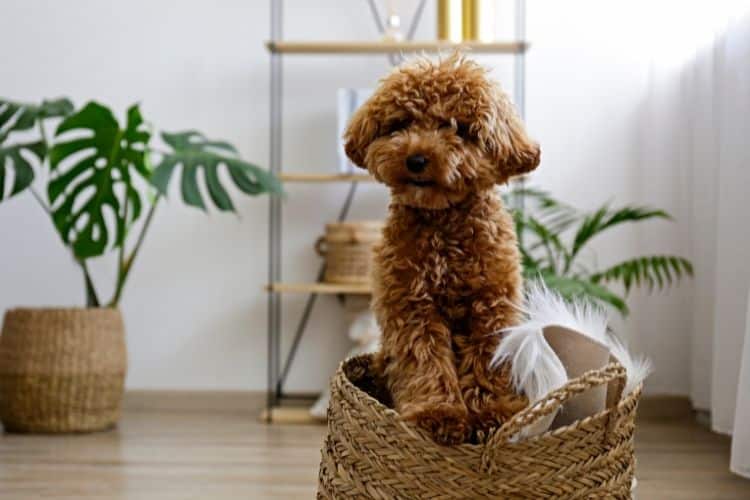
Straight Coat
On the opposite side we have the straight coat that’s mostly inherited from the Shih Tzu parent. Straight-coated Shih Poos may shed some hair, and for this reason they aren’t the best suited for people who are looking for a hypoallergenic dog. On the flip side, straight coat Shih Poos still shed considerably less than their purebred Shih Tzu parents, making them suitable for people with milder pet allergies.
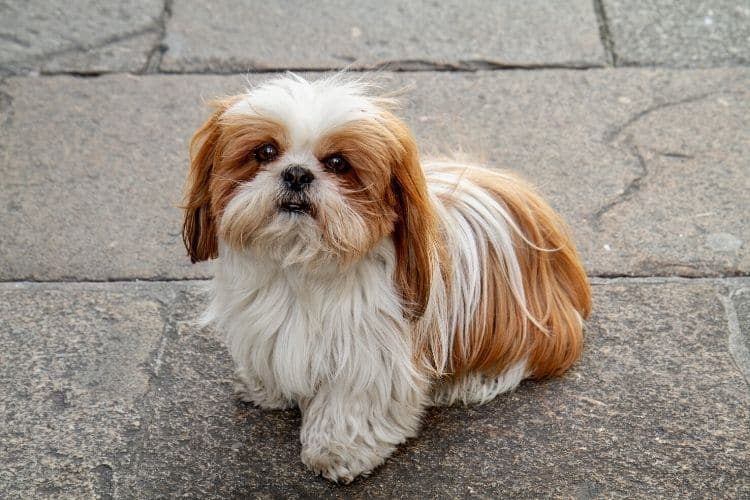
Wavy Coat
And lastly, we have the beautiful wavy coat that combines the best of both worlds. Shih Poos with wavy coats are generally well-tolerated by people with mild to moderate pet allergies. The wavy coat isn’t as high maintenance as the curly coat, and neither does it shed as much as the straight coat. Still, wavy coat Shih Poos may sometimes come with an undercoat, which could be an issue for people with allergies.
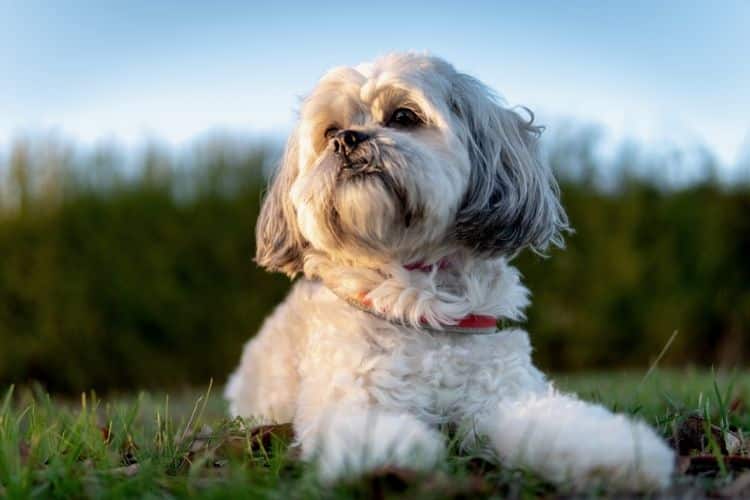
Comparing Shih Poo Generations & Their Hypoallergenic Potential
So, we know that a Shih Poo’s coat type can greatly affect its hypoallergenic potential. But, how can we predict a Shih Poo’s coat type in the first place? Well, the most accurate way for doing so is by extensively testing the breeding dogs’ genetics. In addition to that, If we want to know whether or not a litter of Shih Poos are hypoallergenic, knowing the generation will also give us a fairly accurate estimate.
But what are those so-called generations anyway? To put it simply, Shih Poo generations tell us how the litter was bred, and how much of their genetic makeup roughly consists of either of the parental breeds. Here’s a simple and quick overview of all the possible Shih Poo generations:
| 1st Parent | 2nd Parent | % Shih Tzu* | % Poodle* | |
| F1 Shihpoo (first-generation) | Shih Tzu | Poodle | 50% | 50% |
| F1B Shihpoo (first-generation backcross) | F1 Shihpoo | Poodle | 25% | 75% |
| F1BB Shihpoo (first-generation backcross backcross) | F1B Shihpoo | Poodle | 12.5% | 87.5% |
| F2 Shihpoo (second-generation) | F1 Shihpoo | F1 Shihpoo | 50% | 50% |
| F2B Shihpoo (second-generation backcross) | F1 Shihpoo | F1B Shihpoo | 37.5% | 62.5% |
| F2B Shihpoo (alternate cross) | F2 Shihpoo | Poodle | 25% | 75% |
| F3 / Multigen Shihpoo | F1B Shihpoo or higher | F1B Shihpoo or higher | Varies | Varies |

Are F1 Shih Poos Hypoallergenic?
F1 Shih Poos, a.k.a first-generation Shih Poos have purebred Shih Tzu and Poodle parents. Since F1 Shih Poos are a 50-50 mix of both purebred parental breeds, they can lean on either side of the lineage. For this reason, it’s difficult to predict whether or not an F1 Shih Poo will be hypoallergenic. Therefore, they might not be the best choice for people with severe pet allergies, either.
Are F1b Shih Poos Hypoallergenic?
The F1b or first-generation backcross Shih Poo has an F1 Shih Poo and a purebred Poodle parent. This makes their genetic makeup roughly 75% Poodle and 25% Shih Tzu. Naturally, these pups are also more likely to take after the Poodle parent. For this reason, the F1b Shih Poo is considered more hypoallergenic compared to the F1 Shih Poo, making the F1b Shih Poo a much better choice for people with moderate to severe dog allergies.
Are F1bb Shih Poos Hypoallergenic?
Then we have the F1bb Shih Poo, also known as first-generation backcross backcross. These pups are created by crossing an F1b Shih Poo back to a Poodle yet again. As a result, we get a litter of Shih Poos with the majority of their genetic makeup coming from the Poodle parent. As you might expect, F1b Shih Poos are the most hypoallergenic compared to F1 and even F1b litters.
Are F2 Shih Poos Hypoallergenic?
F2 Shih Poos, or second-generation Shih Poos have two F1 Shih Poo parents. Similarly to their F1 counterparts, F2 Shih Poos are roughly 50% Poodle and 50% Shih Tzu, making it somewhat tricky to predict their hypoallergenic potential.
For this reason, F2 Shih Poos may also not be the best choice for people with severe dog allergies. On the other hand, many reputable breeders choose their F1 parents based on their genetics and coat types, so it’s very possible to get your hands on a minimally shedding F2 Shih Poo as well.
Are F2b Shih Poos Hypoallergenic?
F2b Shih Poos have an F2 Shih Poo and a purebred Poodle parent. Similarly to F1b Shih Poos, they have roughly 75% Poodle and 25% Shih Tzu in their genetic makeup. Since the F2b Shih Poo is a backcross generation, they’re usually more allergy-friendly compared to F1 and F2 Shih Poos.
Are F2bb Shih Poos Hypoallergenic?
Lastly, we have the F2bb, also known as second-generation backcross backcross Shih Poos. They also tend to inherit the majority of their traits from their Poodle parents, since they have 87.5% Poodle and only 12.5% Shih Tzu in their genetic makeup, making the F2bb Shih Poo generally more hypoallergenic compared to F1, F1b, F2, and F2b Shih Poos.
Common Allergic Reactions You May Experience
Whether or not a Shih Poo is hypoallergenic depends on their coat type and genetics. But, even those Shih Poos that are considered hypoallergenic can trigger allergies in some people. After all, it’s the saliva and dander particles that trigger allergies, not the hair itself. So, let’s discuss the most common symptoms of pet allergies in humans.
Obviously, we have the typical sneezing and wheezing, a common allergic reaction that many experience. You might have a stuffy nose, itchy and watery eyes, and your skin may also be flaring up. Skin flare ups are especially common after you come in contact with dog saliva. For instance, when your pup gives you kisses. In severe cases, some people get rashes on their neck and face, even start coughing, and get shortness of breath. Moreover, dog allergies can also trigger asthma attacks.
All in all, Shih Poos are much more allergy-friendly compared to many other breeds. Nonetheless, you may still be allergic to your Shih Poo’s saliva and dander. Depending on the severity of your allergies, you may have to set boundaries for kisses, cuddles, or even how much you’re letting your pup spend time in the bedroom.
Tips For Managing Allergic Reactions
Fortunately, all isn’t as bad as it seems. If you do experience allergic reactions from time to time, there are quite a few ways you can go about this. Here are some of our best, most favorite tips for managing pet allergies.
Groom Your Dood
One of the best and easiest things you can do to manage your allergic reactions is regularly grooming your Shih Poo. All Doodles, including the Shih Poo, need to be groomed daily anyway, as it helps keep their high-maintenance coats looking healthy and beautiful at all times.
As an added bonus, you’ll also be brushing out any dead hair along with saliva and dog dander particles, meaning that there are less allergens floating around your house and finding their way on your carpets and furniture.
We recommend you groom your Shih Poo with a high quality and sturdy brush that’ll last you for a long time. After all, you’ll be using this grooming tool every single day. In addition to that, you might want to look into anti-dander and anti-dandruff dog shampoos that are excellent for neutralizing allergens in pet dander.
Furthermore, you may want to reconsider how often you bathe your Shih Poo. For instance, washing your pup too often can lead to excessive shedding and dry skin, which can make things worse for people with allergies. Or, maybe you could benefit from washing your Dood more often to get rid of saliva and dog dander particles. Obviously, this all depends on your Shih Poo’s skin conditions.
Keep Your House Clean
Another excellent tip for managing allergies is keeping your house as clean as possible at all times. You’ll want to make sure that you thoroughly vacuum all of your soft surfaces, such as carpets, sofas, and regularly wash your curtains. Cleaning your textiles with hot water is especially helpful in neutralizing and removing allergens. Of course, you should also tidy up and wipe down all of your hard surfaces like kitchen counters and hardwood floors.
For allergic people, even regular house cleaning can become quite a nuisance. To prevent allergic reactions while cleaning the house, we recommend you wear a face mask to keep any dust and pet allergen particles away from your airways.
Consider Getting An Air Purifier
Even though you can remove a great deal of allergens from your house by keeping your surfaces, textiles, and furniture clean, it can only do so much. That’s where an air purifier comes into play. Air cleaners and air purifiers can remove a significant amount of allergens that are floating around in the air – none of which you’d be able to catch with your vacuum or mop.
We recommend you look for an air purifier that comes with a HEPA filter. HEPA filters are said to remove at least 99.97% of airborne particles, so that’s something worth considering.
Nonetheless, don’t expect an air purifier to be a miracle fix if you don’t do your part in cleaning the house. These two methods should be used alongside each other for the best results.
Feed Your Pup A Healthy & Balanced Diet
Unfortunately, what many people tend to overlook is their dog’s diet. Did you know that an unhealthy and unbalanced diet can cause your Shih Poo to shed excessively? Obviously, this in turn can cause allergic reactions in people with pet allergies.
What’s more, the Shih Poo and other Poodle mixes are known to be quite sensitive when it comes to food intolerances and allergies. So, if your pup’s body is not agreeing with their diet, it’s very likely going to cause problems like skin dryness, itchiness, and excessive shedding. Usually, dogs tend to relieve itchiness with excessive scratching and licking. As a result, there will be more saliva and dog dander particles triggering your allergies.
Most commonly, allergies in Shih Poos are triggered by artificial ingredients, preservatives, flavors, and colorants in their diets. In addition to that, some pups may also be allergic to common sources of protein, such as chicken. Your pup may also need more essential fatty acids from their diet to promote good skin and coat health.
If you’re suspecting that your Shih Poo is struggling with a food allergy, sensitivity, or intolerance, be sure to consult with your veterinarian about the best possible solution. Fortunately, these problems can usually be managed with a healthy, high-quality, and nutritionally balanced dog food formula.
Reach For Supplements & Medications
Although all of the tips we mentioned above can work wonders for many people, it still might not be enough. In case of severe allergies, you might have to reach for nasal sprays and antihistamines to manage your allergy symptoms. There are also tons of supplements that help with allergic reactions.
Additionally, if your Shih Poo is shedding excessively, we do recommend you reach out to your veterinarian, as they’ll be the best person to determine and diagnose your pup. For example, if your Shih Poo does have a food intolerance or allergy, getting to the root of the problem is also going to relieve your own allergic reactions. Similarly, if the excessive shedding is caused by dry skin or other skin problems, your vet will be able to determine the right course of action.
Are Shih Poos Hypoallergenic? FAQ
Shih Poos are considered hypoallergenic dogs thanks to their Poodle heritage. However, this also depends on what coat type your Shih Poo inherits from its parents. Shih Poos can have either curly, wavy, or straight coats. As a general rule of thumb, curly coats are the most hypoallergenic, whereas straight coats are the least hypoallergenic.
Shih Poos are generally low to non-shedding dogs. Curly-coated Shih Poos shed the least, as they often come with Poodle-inspired single coats. In contrast, straight coat Shih Poos may shed some hair, since they take more after the double-coated Shih Tzu parent. Additionally, Shih Poos with the wavy coat may sometimes shed, but usually not as much as straight coat Shih Poos.
Are Shih Poos Hypoallergenic? Final Thoughts
Hopefully we managed to answer your question – “are Shih Poos hypoallergenic?”. Like other Poodle mixes, Shih Poos have become increasingly popular in recent years thanks to their low-shedding and allergy-friendly coats. Not to mention, they’re simply delightful dogs that will make any pet parent happy.
Although there’s no such thing as a completely, 100% hypoallergenic dog, the Shih Poo does come pretty close. So, if you’re considering getting a smaller allergy-friendly Dood, the Shih Poo might just be what you’re looking for. Nonetheless, before you adopt your new puppy, be sure to do your research and consult with your breeder about your requirements. As the Shih Poo is a hybrid breed, there are no guarantees unless your breeder has conducted extensive genetic testing on each of their puppies as well.
Moreover, even the most hypoallergenic Shih Poos can trigger allergies in some people, considering that the main allergens are found in dog saliva and dog dander. Fortunately, there are many ways you can prevent allergic reactions, such as regular grooming, cleaning, or even purchasing an air cleaner.

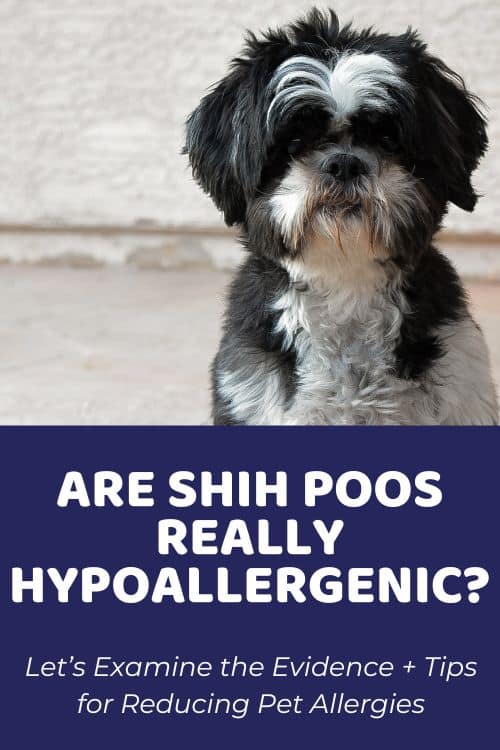
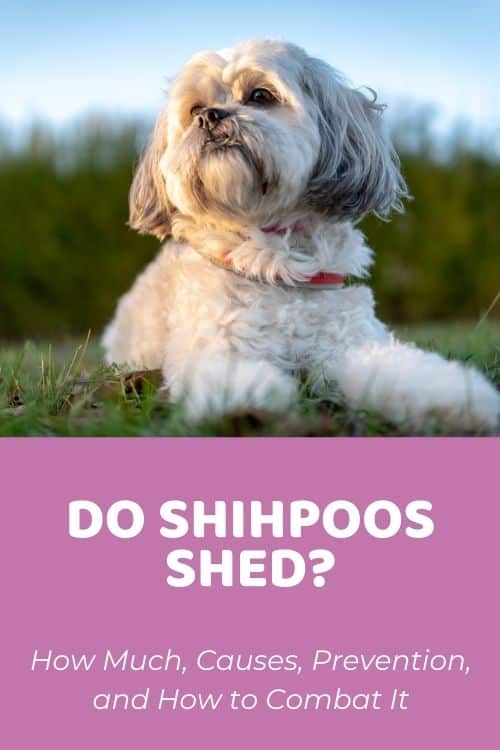
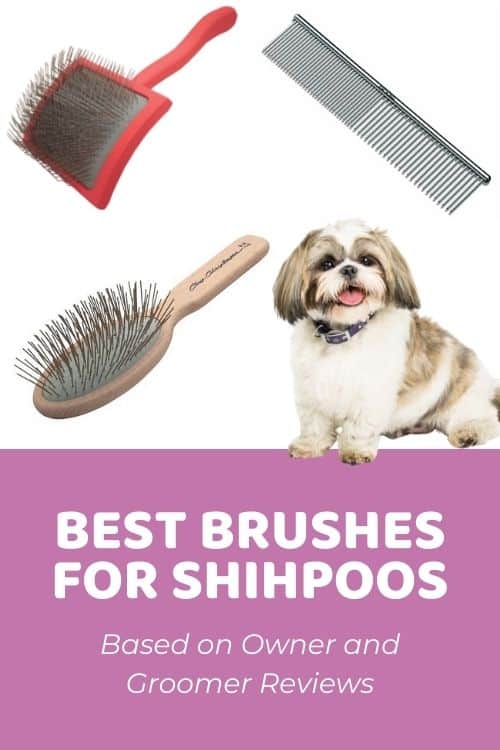

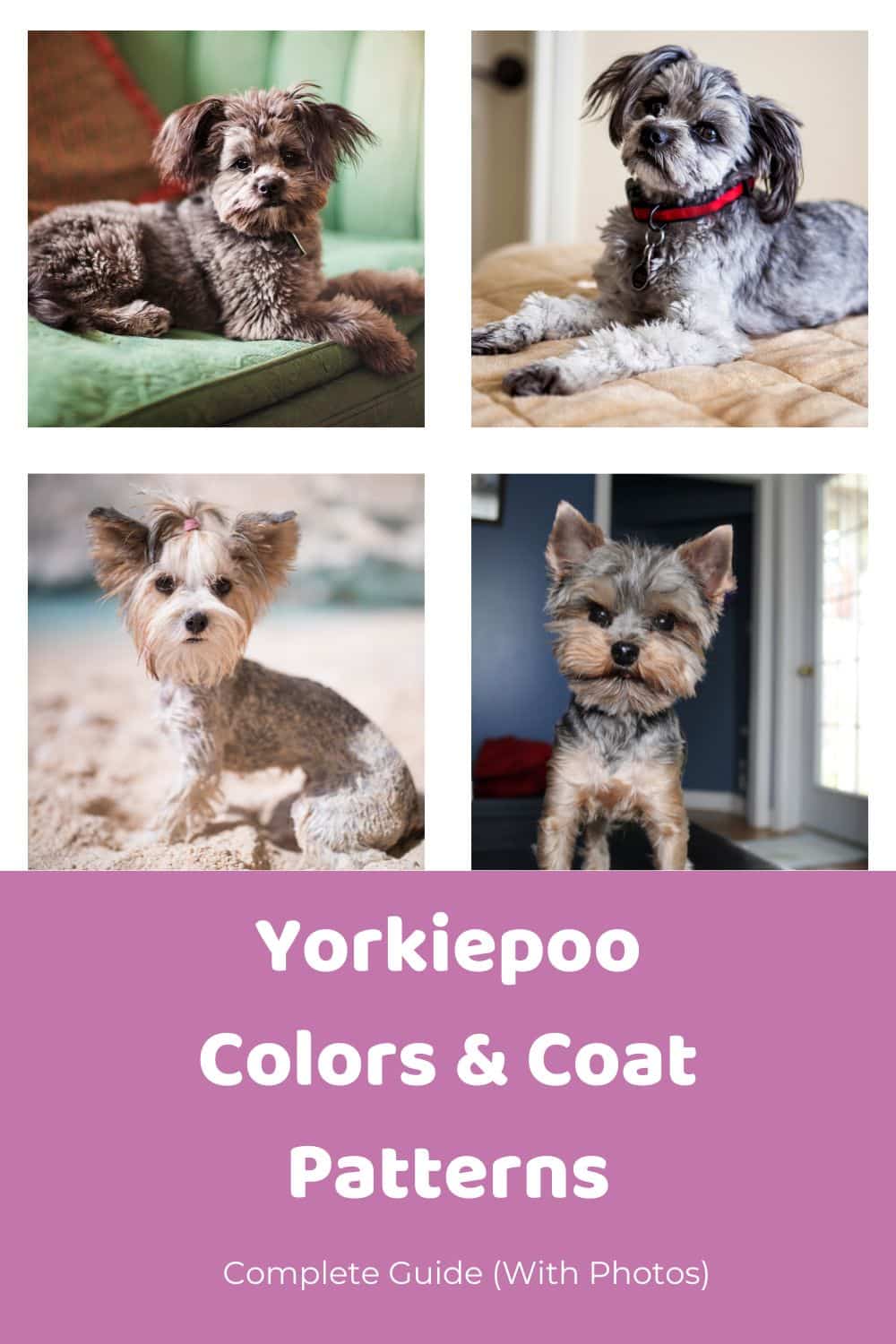
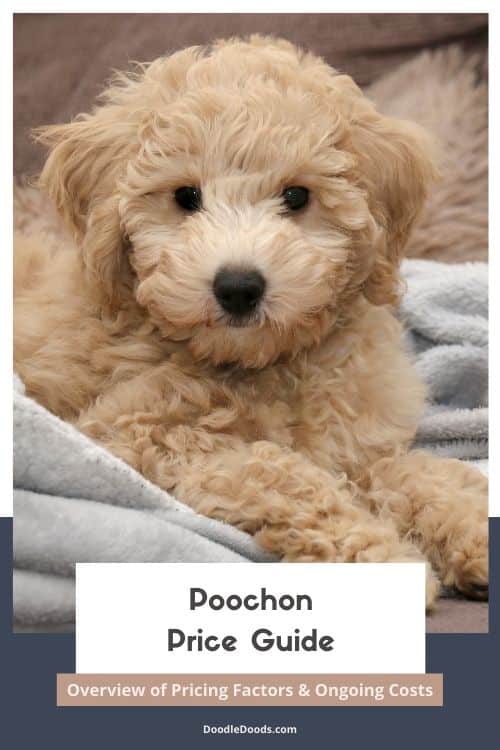
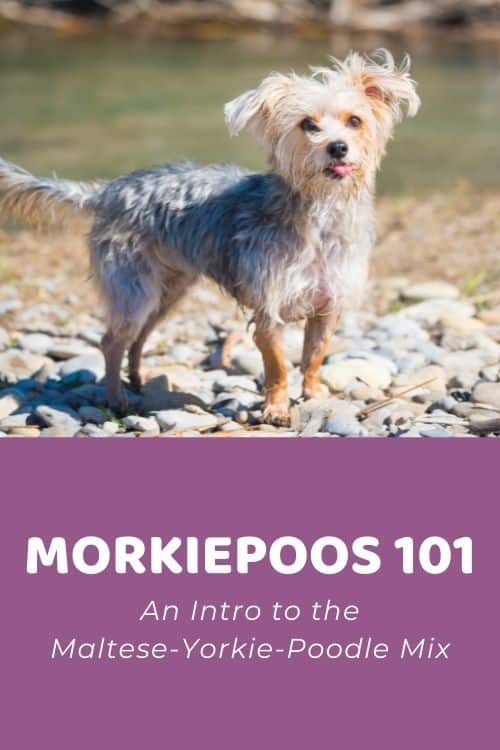
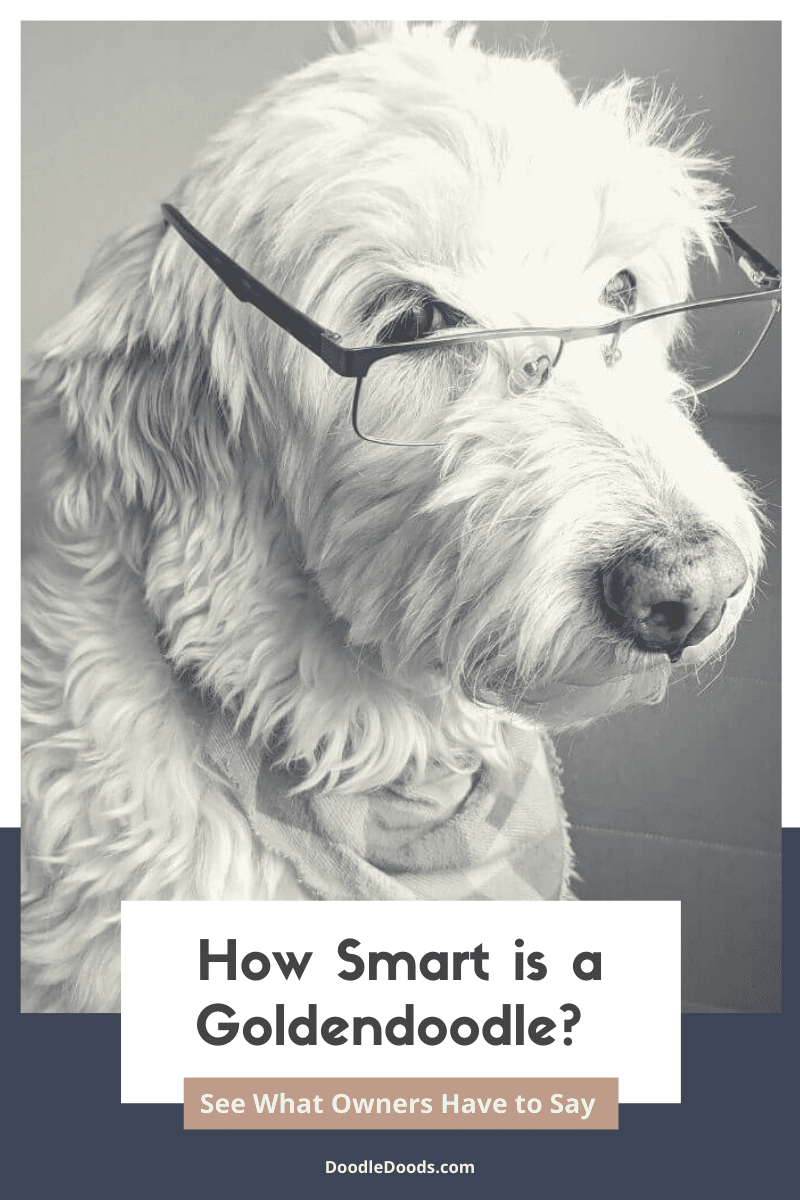
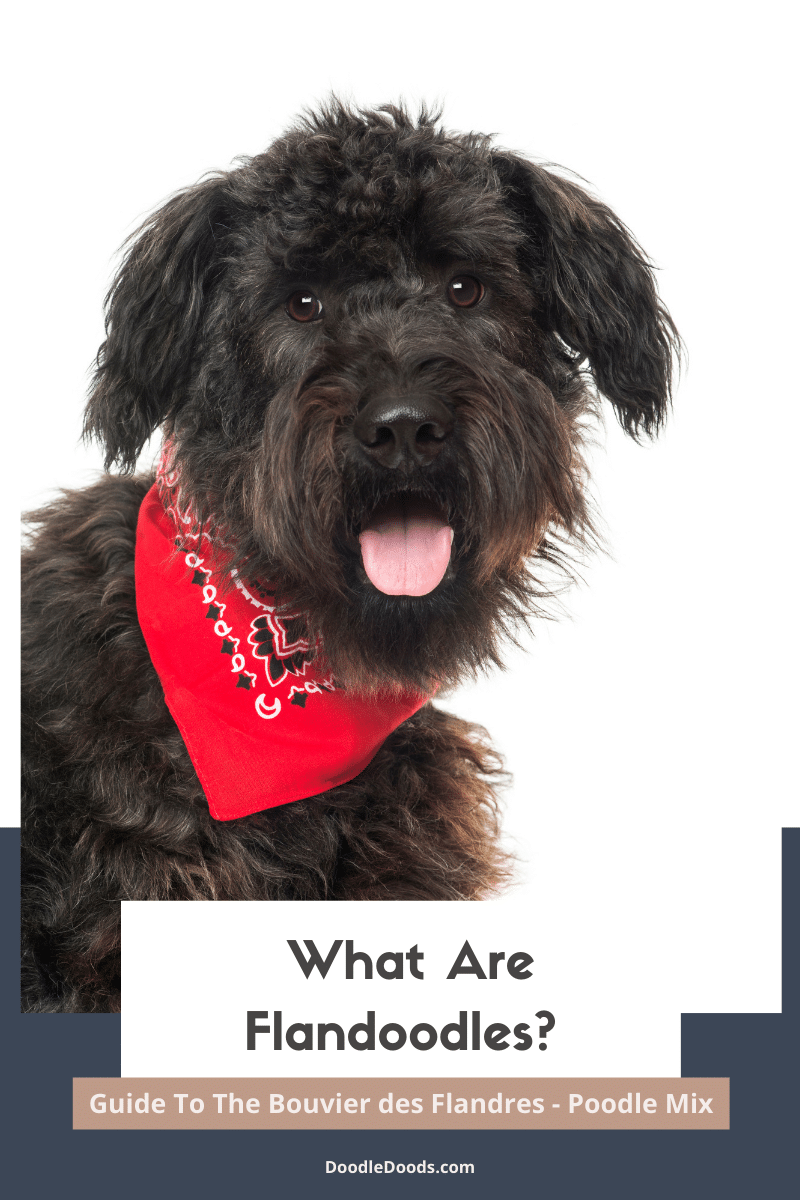
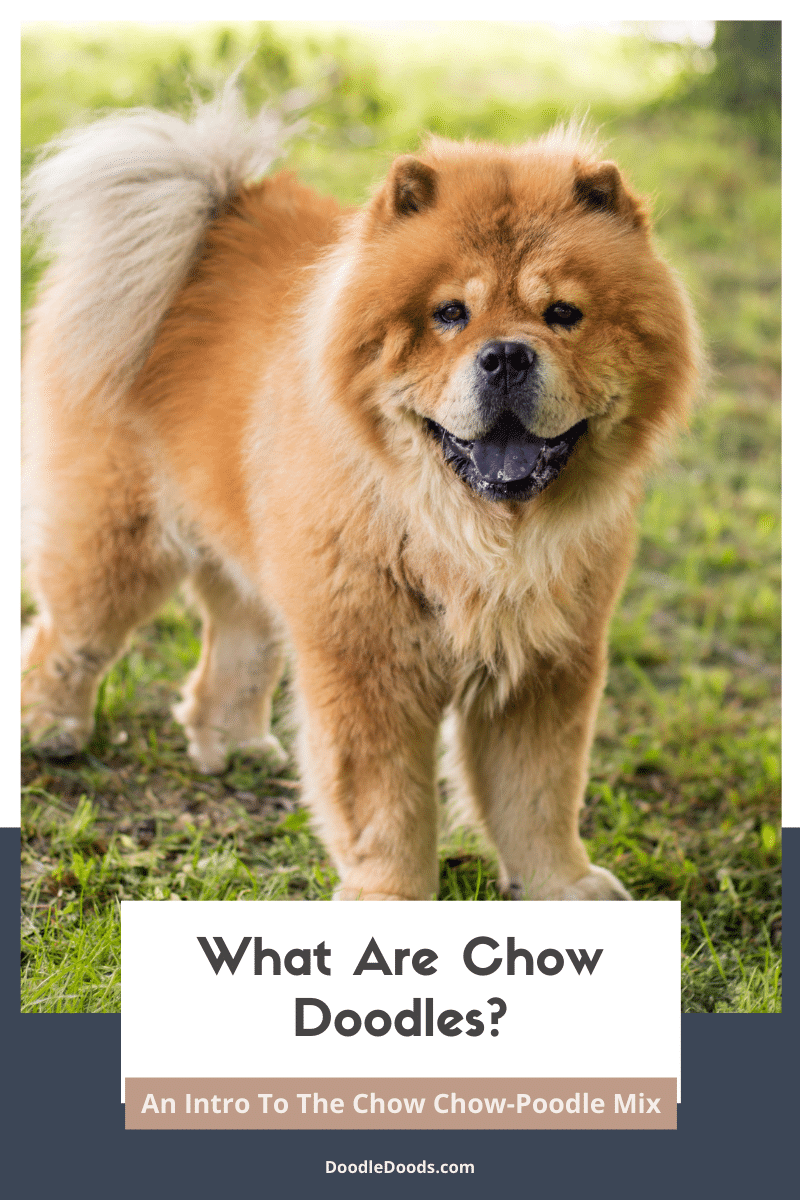
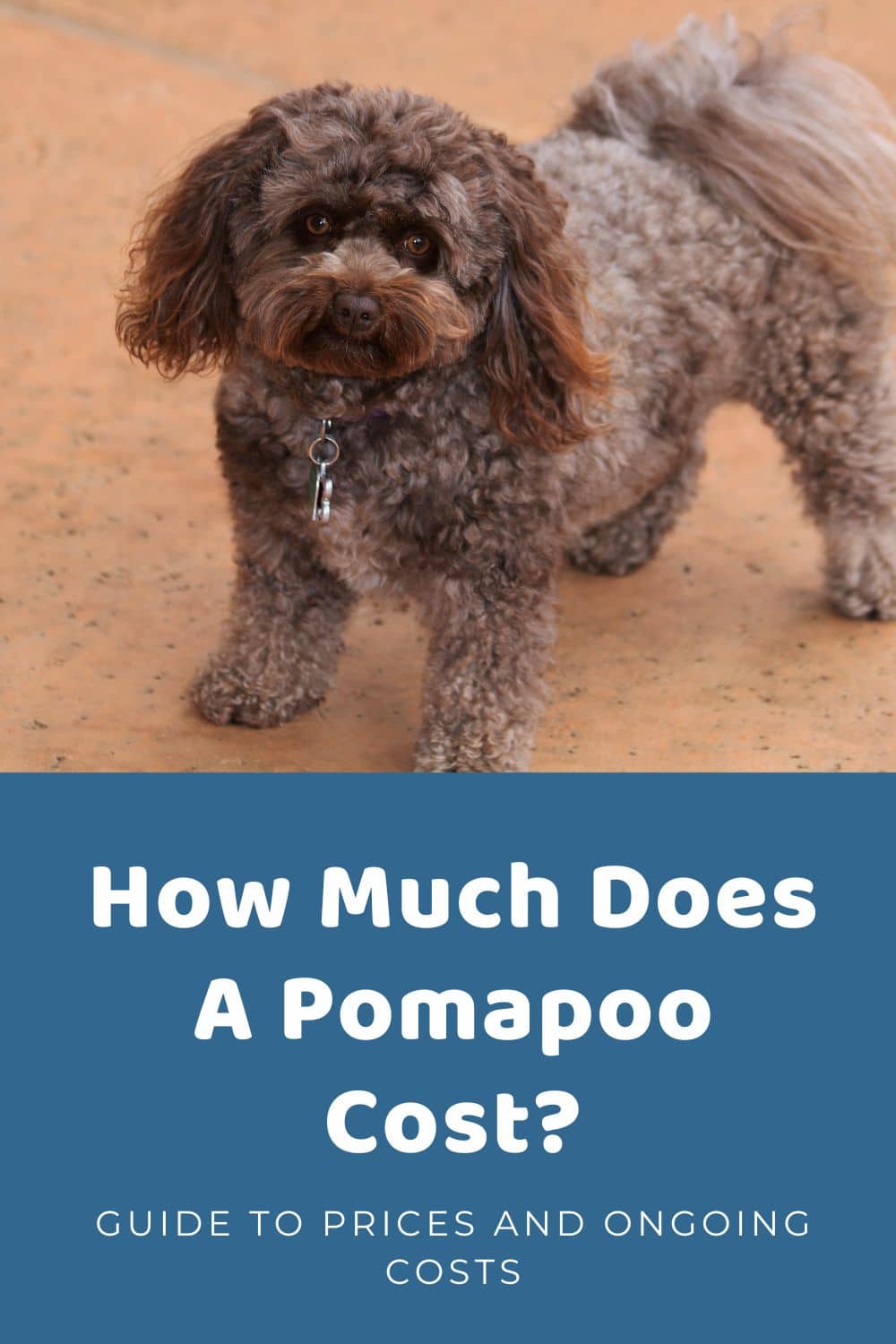
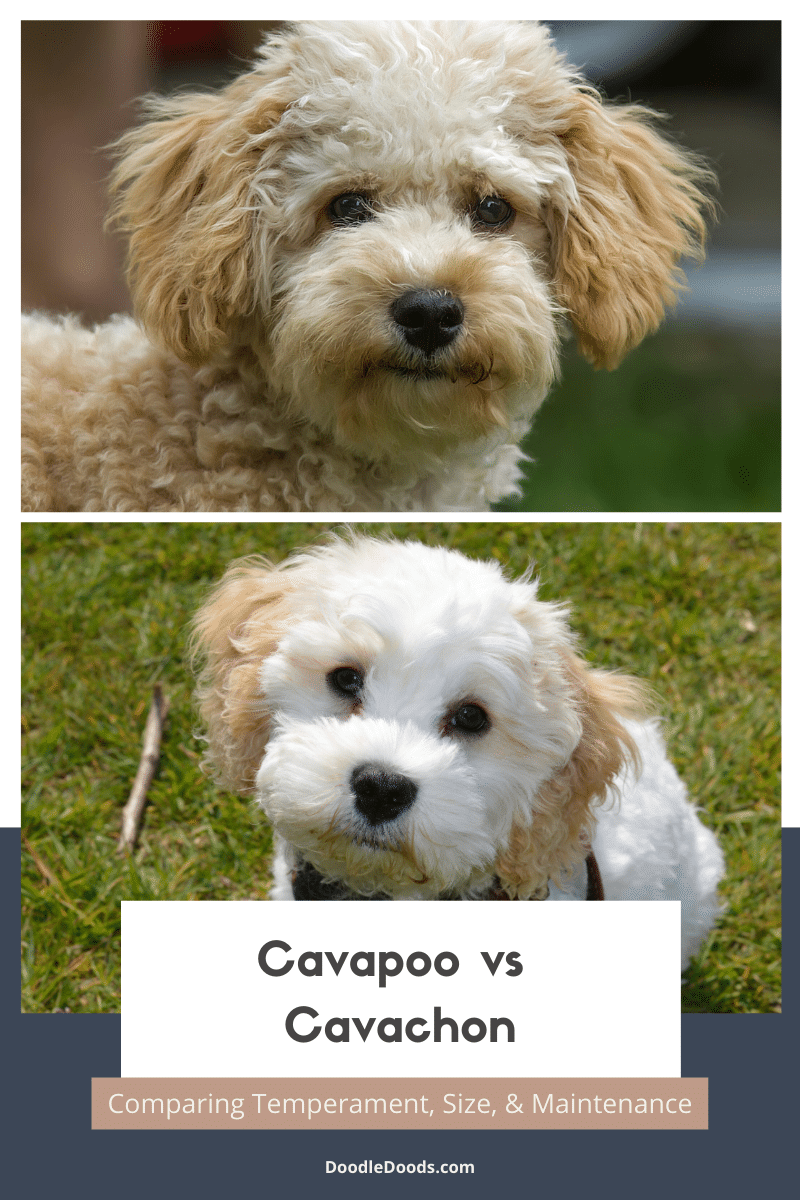
Parents of Shih Poos: is your Shih Poo hypoallergenic? Let us know in the comments below!